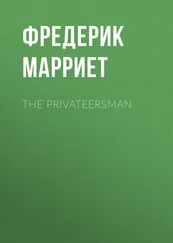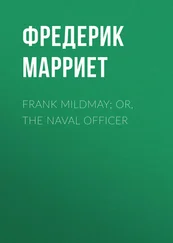Фредерик Марриет - The Mission
Здесь есть возможность читать онлайн «Фредерик Марриет - The Mission» — ознакомительный отрывок электронной книги совершенно бесплатно, а после прочтения отрывка купить полную версию. В некоторых случаях можно слушать аудио, скачать через торрент в формате fb2 и присутствует краткое содержание. Жанр: Детские приключения, literature_19, foreign_antique, foreign_prose, foreign_children, на английском языке. Описание произведения, (предисловие) а так же отзывы посетителей доступны на портале библиотеки ЛибКат.
- Название:The Mission
- Автор:
- Жанр:
- Год:неизвестен
- ISBN:нет данных
- Рейтинг книги:5 / 5. Голосов: 1
-
Избранное:Добавить в избранное
- Отзывы:
-
Ваша оценка:
- 100
- 1
- 2
- 3
- 4
- 5
The Mission: краткое содержание, описание и аннотация
Предлагаем к чтению аннотацию, описание, краткое содержание или предисловие (зависит от того, что написал сам автор книги «The Mission»). Если вы не нашли необходимую информацию о книге — напишите в комментариях, мы постараемся отыскать её.
The Mission — читать онлайн ознакомительный отрывок
Ниже представлен текст книги, разбитый по страницам. Система сохранения места последней прочитанной страницы, позволяет с удобством читать онлайн бесплатно книгу «The Mission», без необходимости каждый раз заново искать на чём Вы остановились. Поставьте закладку, и сможете в любой момент перейти на страницу, на которой закончили чтение.
Интервал:
Закладка:
"I think it would be a very good plan if Mr. Swinton would venture to go where you are bound, Mr. Wilmot, but you can talk of that another day, when you have been longer together. There is nothing that requires more deliberation than the choice of a traveling companion; any serious imperfection of temper may make a journey very miserable. Now, Wilmot, if you are tired of natural history, and wish to change it for the painful history of human nature, I am ready to continue my observations."
"With great pleasure, sir."
"I hope you have no objection to my reaping the benefit also?" said Mr. Swinton.
"Oh, most certainly not," replied Mr. Fairburn, "although I fear you will not gain much information, as you have been at the Cape before. In a former conversation with Mr. Wilmot I have pointed out the manner in which the Cape was first settled, and how the settlers had gradually reduced the original possessors of the land to a state of serfdom; I will now continue.
"The Dutch boors, as they increased their wealth in cattle, required more pasture, and were now occupying the whole of the land south of the Caffre country: the Caffres are wild, courageous savages, whose wealth consists chiefly in cattle, but in some points they may be considered superior to the Hottentots.
"The weapon of the Hottentot may be said to be the bow and arrow, but the Caffre scorns this warfare, or indeed any treachery; his weapons are his assaguay, or spear, and his shield; he fights openly and bravely. The Caffres also cultivate their land to a certain extent, and are more cleanly and civilized. The boors on the Caffre frontier were often plundered by the bushmen, and perhaps occasionally by some few of the Caffres who were in a lawless state on the frontier; but if any complaint was made to the Caffre chiefs, every redress in their power was given: this, however, did not suit the Dutch boors.
"They had entered the Caffre country, and had perceived that the Caffres possessed large herds of cattle, and their avarice pointed out to them how much easier it would be to grow rich by taking the cattle of the Caffres than by rearing them themselves. If the bushmen stole a few head of cattle, complaints were immediately forwarded to Cape Town, and permission asked to raise a force, and recover them from the Caffres.
"The force raised was termed a Commando , and was composed of all the Dutch boors and their servants, well armed and mounted; these would make an incursion into the Caffre territory, and because a few head of cattle had been stolen by parties unknown, they would pour down upon the Caffres, who had but their assaguays to oppose to destructive fire-arms, set the kraals or villages in flames, murder indiscriminately man, woman, and child, and carry off, by way of indemnification for some trifling loss, perhaps some twenty thousand head of cattle belonging to the Caffres.
"The Caffres, naturally indignant at such outrage and robbery, made attacks upon the boors to recover the cattle, but with this difference between the Christian boor and the untutored savage: the boors murdered women and children wantonly, the Caffres never harmed them, and did not even kill men, if they could obtain possession of their property without bloodshed."
"But how could the Dutch government permit such atrocities?"
"The representations made to the government were believed, and the order was given in consequence. It is true that afterward the government attempted to put a stop to these horrors, but the boors were beyond their control; and in one instance in which the home government had insisted that punishment should be inflicted for some more than common outrage on the part of the boors, the Cape governor returned for answer, that he could not venture to do as they wished, as the system was so extensive and so common, that all the principal people in the colony were implicated, and would have to be punished.
"Such was therefore the condition of the colony at the time that it fell into the possession of the English—the Hottentots serfs to the land, and treated as the beasts of the field; the slave-trader supplying slaves; and continual war carried on between the boors and the Caffres."
"I trust that our government soon put an end to such barbarous iniquities."
"That was not so easy; the frontier boors rose in arms against the English government, and the Hottentots, who had been so long patient, now fled and joined the Caffres. These people made a combined attack upon the frontier boors, burned their houses to the ground, carried off the cattle, and possessed themselves of their arms and ammunition. The boors rallied in great force; another combat took place, in which the Hottentots and Caffres were victorious, killing the leader of the boors, and pursuing them with great slaughter, till they were stopped by the advance of the English troops. But I can not dwell long upon this period of the Cape history; these wars continued until the natives, throwing themselves upon the protection of the English, were induced to lay down their arms, and the Hottentots to return to their former masters. The colony was then given up to the Dutch, and remained with them until the year 1806, when it was finally annexed to the British empire. The Dutch had not learned wisdom from what had occurred; they treated the Hottentots worse than before, maiming them and even murdering them in their resentment, and appeared to defy the British government; but a change was soon to take place."
"Not before it was necessary, at all events," said Alexander.
"It was by the missionaries chiefly that this change was brought about; they had penetrated into the interior, and saw with their own eyes the system of cruelty and rapine that was carried on; they wrote home accounts, which were credited, and which produced a great alteration. To the astonishment and indignation of the boors, law was introduced where it had always been set at defiance; they were told that the life of a Hottentot was as important in the eye of God, and in the eye of the law, as that of a Dutch boor, and that the government would hold it as such. Thus was the first blow struck; but another and a heavier was soon to fall upon those who had so long sported with the lives of their fellow-creatures. The press was called to the aid of the Hottentot, and a work published by a missionary roused the attention of the public at home to their situation. Their cause was pleaded in the House of Commons, and the Hottentot was emancipated forever."
"Thank God!" exclaimed Alexander; "my blood has been boiling at the description which you have been giving. Now, when I hear that the poor Hottentot is a free man, it will cool down again."
"Perhaps it will be as well to leave off just now, Mr. Wilmot," said Mr. Fairburn; "we will renew our conversation to-morrow, if wind and weather permit, as the seamen say."
CHAPTER V
The next day the ship was off Rio, and immediately sent her boats for provisions and supplies; the passengers did not land, as the captain stated that he would not stay an hour longer than was necessary, and on the second evening after their arrival they again made sail for the Cape.
The gulls were flying in numbers astern of the ship, darting down and seizing every thing edible which was thrown overboard, and the conversation turned upon aquatic birds.
"What difference is there in the feathers of aquatic birds and others?" inquired Alexander; "a hen, or any land bird, if it falls into the water, is drowned as soon as its feathers are saturated with the water."
"There is, I believe, no difference in the feathers of the birds," replied Mr. Swinton; "but all aquatic birds are provided with a small reservoir, containing oil, with which they anoint their feathers, which renders them water-proof. If you will watch a duck pluming and dressing itself, you will find it continually turns its bill round to the end of its back, just above the insertion of the tail; it is to procure this oil, which, as it dresses its feathers that they may carefully overlap each other, it smears upon them so as to render them impenetrable to the water; but this requires frequent renewal, or the duck would be drowned as well as the hen."
Читать дальшеИнтервал:
Закладка:
Похожие книги на «The Mission»
Представляем Вашему вниманию похожие книги на «The Mission» списком для выбора. Мы отобрали схожую по названию и смыслу литературу в надежде предоставить читателям больше вариантов отыскать новые, интересные, ещё непрочитанные произведения.
Обсуждение, отзывы о книге «The Mission» и просто собственные мнения читателей. Оставьте ваши комментарии, напишите, что Вы думаете о произведении, его смысле или главных героях. Укажите что конкретно понравилось, а что нет, и почему Вы так считаете.












